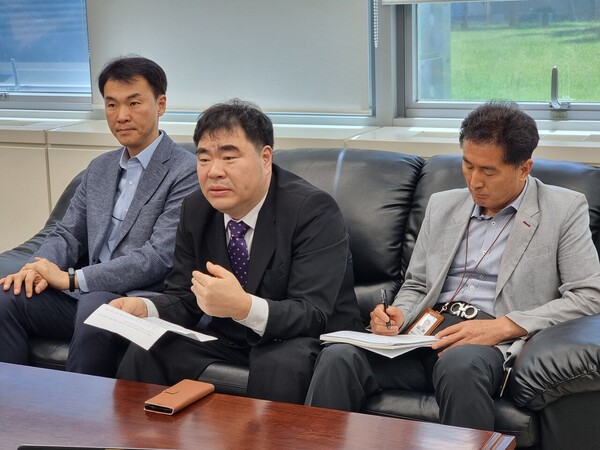The digital health industry, which develops digital therapeutics (DTx), software as medical devices (SaMDs), and wearable devices, has called for the regulator to introduce decentralized clinical trials (DCTs).
However, the Ministry of Food and Drug Safety (MFDS) recently took a cautious position.

Chae Kyu-han, director-general for the MFDS' Medical Device Safety Bureau, expressed his views on the possibility of introducing DCTs to help develop the domestic medical devices industry at a meeting with reporters on Tuesday.
DCTs refer to conducting some or all clinical trial activities for drug or medical device approval at a location other than the investigator's site (medical institution). The pharmaceutical industry is paying attention to the new practice because it is relatively easy to recruit patients and can increase clinical engagement.
“We will likely have to judge whether DCT is possible product by product,” Director-General Chae said. “For example, in the case of respiratory rehabilitation digital therapeutic devices, we will have to decide whether to send the data collected by sensors on patients’ body to assess breathing situation directly (to researchers) or to the cloud.”
Chae showed a cautious stance, saying. “DCT can be an option when they develop products that may not have been considered in the past. However, we can hardly say they must or can apply the DCT formula to developing all products.
Still, Chae left open the possibility, noting that DCT is a global trend.
"In the past, clinical assessments were often made biochemical tests by collecting blood draws. However, digital biomarkers have emerged by drafting digital technology, and, in some cases, wearable devices are the assessment tool,” Chae said. It (DCT) is a global trend."
He pointed out that many wearable devices were already used as clinical evaluation tools, and the medical device sector could accept that part more than the pharmaceutical sector.
“We will create standards or guidelines but are racking our brains not to remain as ‘Galapagos’ in this field,” Chae said, referring to the South American island isolated from the rest of the world.
As researchers continue to create ways for people to participate in clinical trials in their daily lives, the government will work to ensure that these innovations are reflected in the development of digital health products, Chae said.
Seong Hong-mo, director of the Medical Device Management Division, said the ministry would soon complete amending the “partial amendment bill to the Medical Device Act” to increase access to medical devices for people with disabilities, adding that it calls for including Braille or sign language videos in medical device entries.
“It will be a recommendation, not a requirement, but we will be meeting with industry and disabled people’s organizations to discuss how to make it work in practice,” Seong said.
Related articles
- Clinical trials are shifting towards DCT but hybrid approach more likely: IQVIA execs
- Decentralized clinical trial emerges as irresistible trend. What about Korea?
- [Special] ‘Regulation’ blocks DCT introduction in Korea. So how to unravel tangled threads?
- [Special] DCT was behind 1st Covid-19 vaccine developed in just 1 year
- [Special] 'Be it US, Europe, or China, DCT is global trend in clinical trials'
- [Special] Decentralized clinical trial is not an option but a must
- JNP MEDI's pioneering role in DCT unveils enormous potential
- ‘Slow adoption of AI, DTx solutions prohibitive in medical field’
- How Nokia spurred Finland's burgeoning digital health ecosystem

